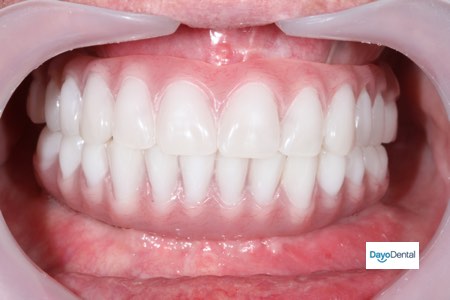A dental bridge is a fixed prosthetic device used to replace one or more missing teeth by connecting them to neighboring teeth, while a dental implant is a surgical component that integrates with the bone to support a dental prosthesis. Dental bridges offer a more cost-effective and less invasive option for replacing missing teeth, but they may require the alteration of adjacent healthy teeth.
On the other hand, dental implants are a highly durable and long-lasting solution that preserves the integrity of neighboring teeth and provides a natural look and feel. Ultimately, the choice between a dental bridge and an implant depends on individual factors such as oral health, cost considerations, and personal preferences.
However, consulting with a dentist is essential to determine the most suitable option for each patient’s circumstances.
Understanding Dental Bridges
Dental bridges and implants are two popular options for replacing missing teeth. Dental bridges are custom-made appliances that bridge the gap between missing teeth. They are anchored in place by adjacent teeth and can be made from different materials like porcelain or metal alloy.
Dental bridges are cost-effective and can restore the appearance and function of your smile. However, they require healthy nearby teeth for support and may need to be replaced over time. On the other hand, dental implants are titanium posts that are surgically placed in the jawbone to serve as artificial tooth roots.
They provide a sturdy foundation for replacement teeth and stimulate bone growth to maintain jaw structure. Although dental implants may have a higher upfront cost, they offer a long-term solution and can last a lifetime with proper care. Ultimately, the choice between a dental bridge and implant depends on your specific dental needs and budget.
It is best to consult with your dentist to determine the most suitable option for you.
Exploring Dental Implants
Dental implants are a popular solution for replacing missing teeth. They are titanium posts that are surgically placed into the jawbone to act as artificial tooth roots. The implant fuses with the bone over time, providing a sturdy foundation for a dental crown or bridge.
The main advantage of dental implants is their durability and longevity. They can last for decades with proper care and maintenance. Additionally, implants look and feel like natural teeth, allowing for comfortable eating and speaking. However, there are also drawbacks to consider.
Implants require a surgical procedure, which may not be suitable for everyone. They can also be more expensive compared to other options, and the process can take several months from start to finish. Overall, dental implants offer a reliable and permanent solution for missing teeth, but it’s important to weigh the pros and cons before deciding on the best treatment option.
Factors To Consider When Choosing Between Bridges And Implants
Factors to consider when choosing between dental bridges and implants include dental health and condition, longevity and durability, aesthetics and natural look, time and cost considerations, and maintenance and care. It is important to assess the overall health of your teeth and gums before deciding on a treatment option.
Bridges can usually be placed if the adjacent teeth are strong and healthy, while implants require sufficient bone density for successful placement. Implants are known for their durability and can provide a long-lasting solution, whereas bridges may need to be replaced over time.
Aesthetically, implants tend to offer a more natural look as they are surgically implanted into the jawbone. When it comes to time and cost, bridges are generally quicker and more affordable compared to implants. Maintenance and care for both options involve regular brushing, flossing, and professional cleanings.
Ultimately, the best choice depends on individual circumstances and should be discussed with a dentist.

Credit: www.dayodental.com
Conclusion
The decision between a dental bridge and implant ultimately depends on your individual circumstances and preferences. Dental bridges offer a cost-effective solution for replacing missing teeth, providing stability and aesthetics. However, they may require modification of adjacent healthy teeth. On the other hand, dental implants offer a permanent and durable option that mimics the look and feel of natural teeth.
They also preserve bone health and require no alteration of neighboring teeth. While dental implants may have a higher upfront cost, they offer long-term benefits and results that can improve your overall oral health. Consulting with a dentist is crucial in determining the best option for you, as they have the expertise to evaluate your specific needs and guide you towards the most suitable choice.
Ultimately, the goal is to restore your smile, functionality, and confidence, allowing you to enjoy a healthy and beautiful set of teeth for years to come.




